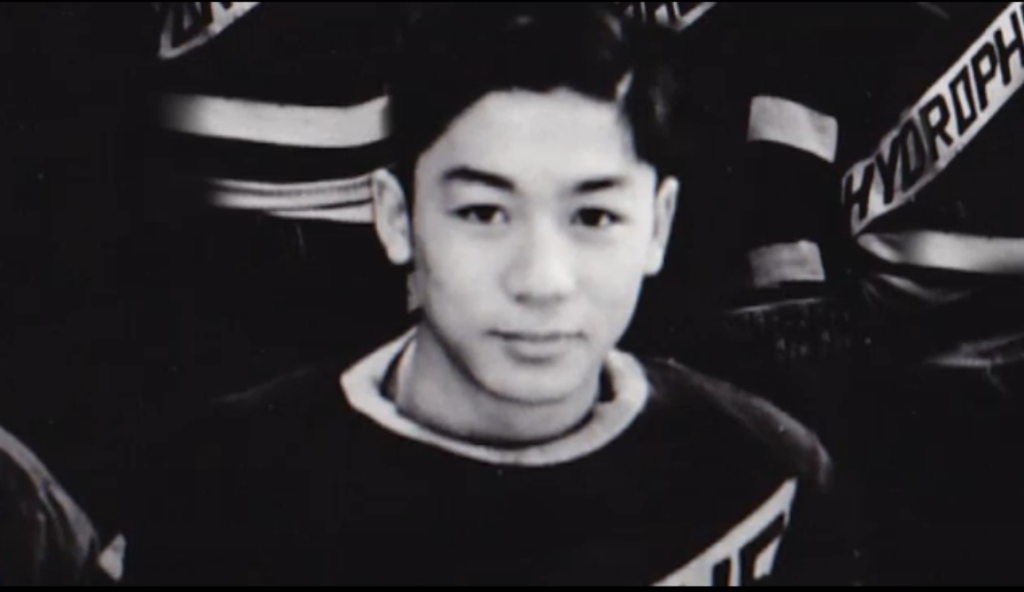
It’s been 75 years since Chinese-Canadian hockey player Larry Kwong hit the ice for the New York Rangers, becoming the first non-Indigenous person of colour to play in the NHL. Heather Yourex-West explains the story of the “China Clipper”, and how his supporters are pushing for his impact on the sport to be formally recognized.
For Chad Soon the stories of his hockey hero often seemed impossible to find.
“My grandfather told me about Larry Kwong when I was younger. My grandfather grew up in Vancouver’s Chinatown where he was a huge hero,” Soon recalls. “I would search for stories in my hockey books and hockey magazines but I could never find anything.”
It struck Soon, an elementary teacher from Vernon, B.C., that something needed to change.
In a time when Chinese Canadians did not have the right to vote, when the Chinese Exclusion Act prevented people of Chinese origin from immigrating to Canada, a Chinese-Canadian kid from British Columbia was excelling on the ice.
“Larry Kwong played against some of the best of all time, Jean Béliveau rated him as a great hockey player, Dickie Moore said he could do it all. Larry once scored two goals on Jacques Plante in 47 seconds,” said Soon.
In 1946, Kwong began playing with the New York Rovers, the New York Rangers’ farm team. He was the leading scorer and packed Madison Square Gardens with fans from the city’s Chinese community. There were rumours that year that Kwong would get called up to the NHL but it didn’t happen.
“Player after player got called up ahead of him. I think (the NHL) was afraid of change.”
Kwong would have to wait two long years but on March 13, 1948, his time finally came and for one single shift, Kwong skated in the NHL, a New York Ranger at the Montreal Forum.
“When you think about him stepping on the ice whether it’s with the Rangers, the Rovers, playing in the Quebec Senior Hockey League, and then eventually playing and coaching in Europe. He was breaking barriers everywhere,” said Moezine Hasham, founder of Hockey 4 Youth, an organization that works to make hockey more accessible to newcomer youth who may not otherwise have a chance to play.
“Larry meant so much to me. I had my fair share of racism going through the minor hockey system and I know that Larry faced racism too. The perseverance he showed is an inspiration for me but it’s also an inspiration for our kids to know that hockey can be a place of belonging,” Hasham said.
Hasham and Soon are among a group of supporters who are now petitioning for Larry Kwong to be inducted into Canada’s Hockey Hall of Fame so that his story as a barrier-breaking builder of the sport can be permanently recognized.
“My grandfather never thought he was any kind of big deal himself,” Samantha Heinz said of Larry Kwong, who died in March 2018 at the age of 94. “It wasn’t until Chad (Soon) came into his life that I think he realized that he really did make a difference and could share his story to make a difference in people’s lives.”
Heinz and her mother now spend time sharing Kwong’s story with the next generation, hoping to ensure his achievements are never forgotten.
“I think the more we can talk about his story and say here is someone in the hockey world that in a predominantly white sport we can share his story and let people know that he was there and he was ready to play.”
